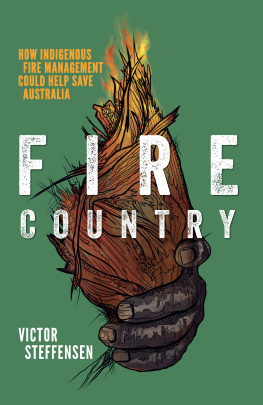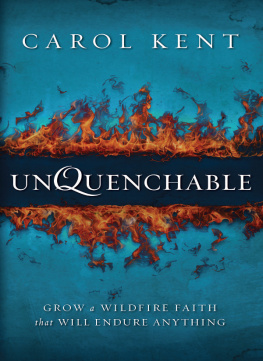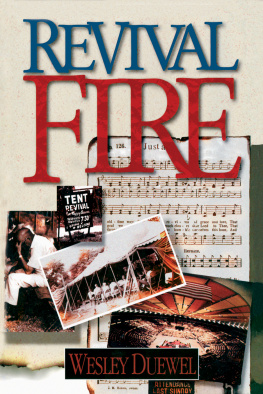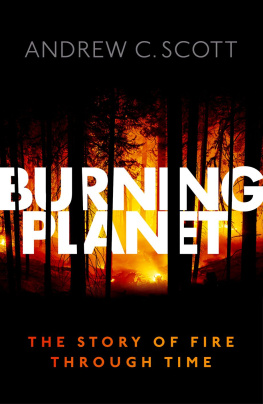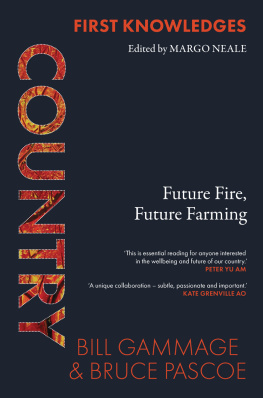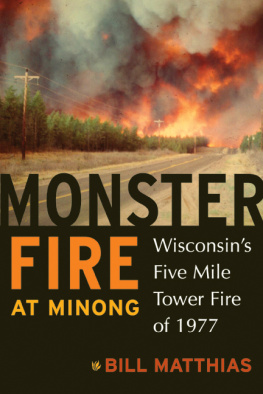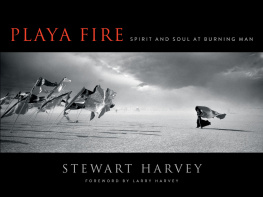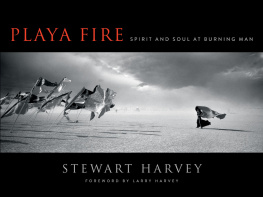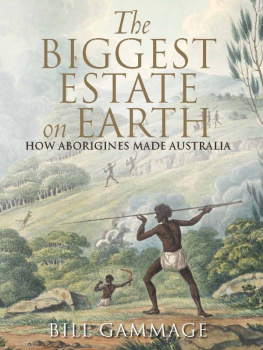
Through my childhood I was always interested in learning whatever I could about culture and the bush. I never grew up on country linked to my heritage; instead, my hometown was a little village in the rainforest called Kuranda, the home of the Djabugay people. There were people from other clan groups from all over living there too, from the earlier mission days. A large hippie population moved into town in the late sixties and seventies and set up camp too. There are still some of the old-school ones living there, cruising around. We all went to school barefoot; even when we played sport we didnt wear shoes.
I was lucky to grow up in that little rainforest town back then there was lots of village talent to inspire. A free-living place with plenty of live music, fresh food markets, and far-out characters. Just about everyone could play the guitar and we would have long nights down the river jamming by the fire. I loved playing music, and getting into drama, as artistic inspiration was all around me. The best thing about Kuranda in those days was the Barron River. Everyone loved spending time along the sandy riverbanks every day. Always going fishing and camping with my good brothers under the stars. Telling hairy-man stories as we tried to sleep on the cold sand, listening for him walking around through the night. I wanted to learn more about culture, and throughout my childhood I picked up whatever I could from my own surroundings.
My early school days in Kuranda are golden memories that always make me smile. But high school wasnt all that fun for me. Thats when the rules came in to start wearing shoes. There wasnt anything at school that suited my personal interests, except drama class, in the first couple of years. Then the only thing that kept me at high school after that was basketball. We played every morning and afternoon, on the school team and in our hometown team, as the Kuranda Cassowaries. I grew to love playing the game because my friends were into it too. Every day I would jump the backyard fence and run down to the outdoor basketball court. At the end of the day most of the young men met up to play amazing touch footy games on the school oval.
As a kid, the hardest thing about growing up was understanding my Aboriginality as a mixed-raced person. There are a few different blood lines running through our particular family tree, like many Aboriginal people have now. German, English, Dad used to say he had Viking blood too, but I was taught by my mother to be respectful of them all. Kids in those days could be cruel and they questioned my identity on many occasions when I shared my Aboriginal heritage. But I had the ability to hang around and be comfortable with both the Aboriginal kids and the white kids, which allowed me to hear trash talk on both sides. No matter who I heard it from, it always hurt when I heard racist remarks. I would go home confused and tell my mum what some kids would say at school about Aboriginal people. She would respond by saying, Dont you ever forget that you have Aboriginal blood too. You tell them that and dont worry about what anybody says.
It always made me feel better when she told me that, but I knew there was something missing. I didnt know enough about Aboriginal culture and I had no one to teach me what I wanted to know. It was a huge void in my life, a gap I wanted to fill. I certainly didnt know anything about Aboriginal fire knowledge as a kid; they didnt teach it at school and I lived in the rainforest. But I did have a fascination with fire, that was for sure. I loved making camp fires down the river and flicking matches around, watching them ignite as they flew through the air. I guess I was more of a fire bug than anything else, but what do you expect from a little kid?
I do remember my very first fire, though, and it certainly is one of the fires that I remember the most. I was about eight years old when I grabbed a packet of Redheads matches and went to play in the backyard. I ended up exploring the big banana patch that was growing right behind our chicken pen at the time. I stood in the middle of the banana patch, crunching on a huge pile of dead leaves. It was too good an opportunity to refuse. It was like those dead leaves were begging me to strike a match and burn them to a cinder. That is exactly what I did I struck the match and the fire started instantly, burning the dry banana leaves to a point where I realised it was out of control.
The flames went wild and started to flame up over the chicken pen, which housed at least twenty or more fowls that fed our family. The flames rose up and engulfed the banana trees that my dad prized so much. I realised that I was about to burn down the chicken pen and that I was in big trouble. I began to panic and ran up to the house to find some way to put out the fire. My older sister was the only person I could find and she yelled out, Youre in trouble. Quick, grab the hose! By now the flames were starting to rise above the roof of the chicken coop and all I could think about was the hiding I was going to get from my father. My sister ran over to turn the tap on as I grabbed the hose and dashed towards the chicken pen as fast as I could.
I ran with the hose in hand at full speed towards the crime scene, then I ran out of hose, which jerked me up in the air to land flat on my back. The hose was way too short to reach the pen. All I could do was sit there and watch the flames as they engulfed the chicken coop. Luckily, Dad came to the rescue and started to put the fire out with buckets of water. He saved our chickens from being roasted alive, but the worst was yet to come. I sat there and waited for him to come over and give me the good old-fashioned hiding. That would have to be the worst trouble I have ever gotten into for lighting a fire. Little did I know that I was going to light a lot more fires in my lifetime.
By the age of seventeen I had left my home and school to head out into the big wide world. I wanted to find a way to become a ranger and be out in the bush. The only option I had came through my Aboriginal liaison officer at school. Unexpectedly, he had set me up for special entry into Canberra University to study cultural heritage. I needed a special entry because I didnt do too well with my senior school marks, except for cooking classes. The bizarre side of taking that uni course was that I would have to live in Canberra, the last of all places you would expect to see a North Queensland boy. Before long, I got accepted and found myself at Canberra University.
On campus I was living with other Indigenous students from around the country. I soon learnt that the only important things were hot food and keeping warm. All the other Indigenous students became family and we would look after each other. It was more about survival for us at that age, chucking in for food and taking turns at cooking meals. But when it came down to study I did try hard. One of the classes I had to do was English. It was extremely difficult and, with all due respect, not my cuppa tea. I didnt see how it was relevant to what I was wanting to learn at the time. So between that and the freezing cold weather, I only lasted a long three months before I went back home. Once one of us left to go home, most of the others followed and went back to their hometowns soon after. University may have been the wrong choice for me at that time, but it was a good short-lived memory, and at least I tried.
By mid-1991, I was home again in the sunny warm north, on the case of working out what to do next. Dad was hounding me to get a job and start doing something with my life. I didnt have a clue what to do at the time; Id only just turned eighteen. The next best thing that came along was an invite from some Kuranda friends to go fishing out bush, up north to a little town called Laura in the lower region of Cape York. That sounded like a good opportunity, so I packed a swag and a fishing line, and jumped in the car with the rest of them. Little did I know that day was a one-way ticket to the bush and the beginning of my pathway in life.
Next page
